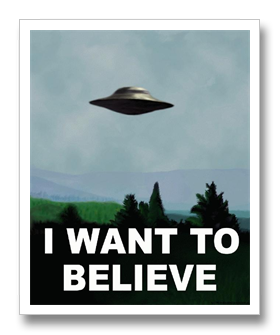“The ruler of the world is no longer the country with the bravest soldiers, but the greatest scientists.” – First Elder.
731 [Mythology] Aired December 1, 1995
Episode: 3×10 / 59 Overall
Director: Rob Bowman • Writer: Frank Spotnitz
Mulder becomes trapped aboard a train rigged with an explosive device. Scully searches for the truth behind the government’s secret experiments.
Alternate tagline: Apology is Policy
I am a firm believer that The X-Files was at its best when it focused on standalone stories and I’m often in two minds about the series mythology episodes. I was reluctant at first to concede to the fact that the myth-arc was poorly planned. It’s of course possible for the more dedicated of fans to piece together the fragmented story lines throughout the series original nine season run and manufacture some semblance of coherence, though it’s admittedly hard work to maintain a consistent narrative thread. In 2005, FOX released four DVD volumes each focusing on an overarching theme from the series mythology. They are Abduction, Black Oil, Colonization and Super Soldiers, the idea being that you could watch the whole story arc in succession. Every mythology episode throughout the series can be grouped under one of these four categories. In this sense the mythology is quite simple to follow, each episode always related back to a major thematic arc. However it’s in the details that things become less defined. Already by Season three the audience has learned to take any revelation with a grain of salt, is this really the truth or yet another lie to cover a bigger conspiracy? There’s no doubt the continuous cover ups and misdirection became tedious as the series progressed and in retrospect it’s hard to enjoy some of these shocking moments when we know that later on down the track this will all be rebuffed. This always made me feel rather cheated.
Viewing this episode for the first time though, it certainly seems to confirm, more or less, the theory of alien/human hybrids and the human involvement in supposed abductions. Compared to Nisei this is a much more action packed show, easily my preferred episode of the two. The sequences involving Mulder on the train with the unnamed NSA agent, Stephen McHattie, carry a lot of tension and inter-cut nicely with Scully’s first and only interaction with the First Elder of the Syndicate. The episode builds to a climax in which Mulder is so headstrong in his personal beliefs that he is willing to risk his own life. The evidence is once again destroyed and buried under lies, the agents unable to prove anything beyond their unsubstantiated personal experiences.
As is often the case with mythology episodes, I find myself constructing my own explanations in lieu of any concrete answers. In my opinion the First Elder was deceiving Scully, claiming that the experiments had nothing to do with aliens and instructing her to get Mulder to stop the train at the next station. This was his attempt to locate the train and capture the hybrid creature, Mulder suspects this however and reroutes the train to an area where the Syndicate are unable to find him in time. At the episodes conclusion we can see that Cancer Man is having Dr. Shiro Zama’s notes translated so that they may use his research. To me this clearly indicates that had they been able to, they would have saved the hybrid from being killed in the explosion, if not for Mulder’s interference. X saves Mulder and leaves the hybrid inside, presumably because he does not know of its significance and he himself has no involvement with the Syndicate. He claims earlier on to Scully that there are limits to his knowledge and to me this scene proves that assertion. As far as mythology episodes go I actually feel this one is fairly straightforward and much of what is revealed here by Mulder remains to be true through to the original series end. Disregarding future narratives, this is an enjoyable episode with a great action/suspense sequence that definitely makes up for the comparatively dull Nisei.
★★★☆☆

